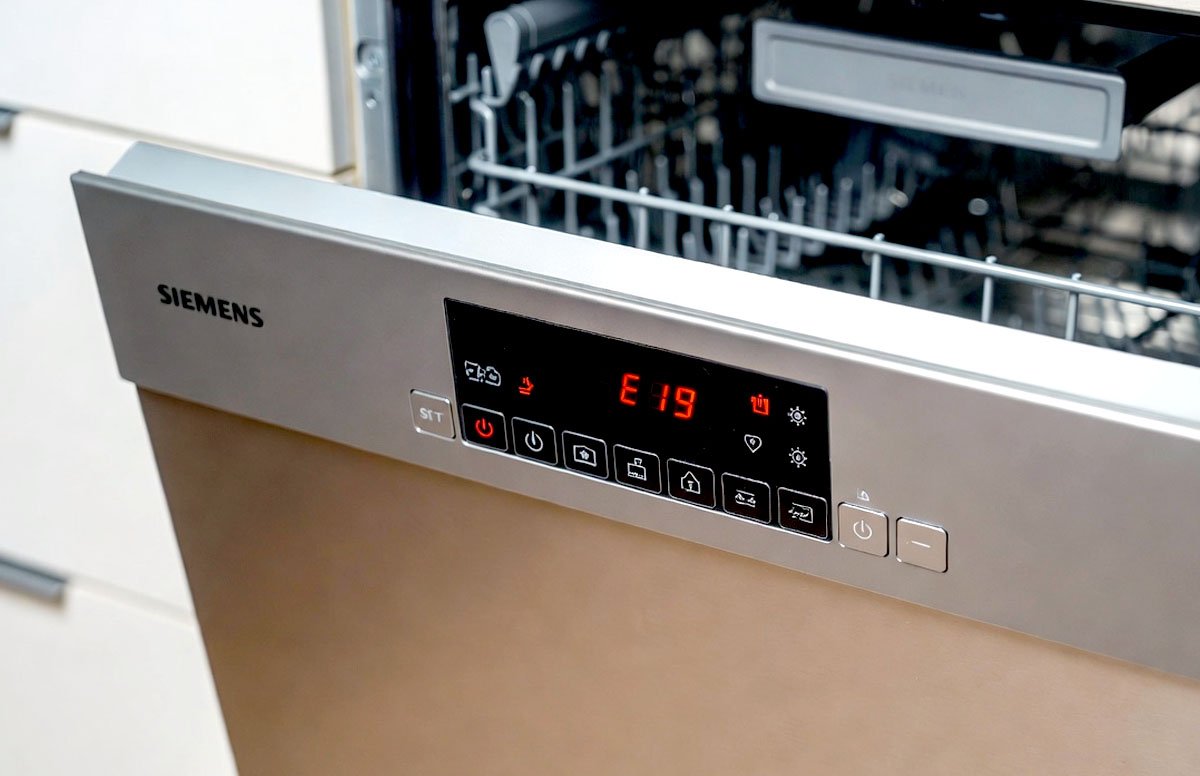As an Amazon Associate, I earn from qualifying purchases at no extra cost to you.
Does Using Dishwasher Save Water? Smart Tips to Save Big
Last week, I noticed my water bill spiking and wondered if my dishwasher was helping or hurting. Handwashing dishes always felt wasteful, but could the dishwasher really save water? I decided to dig in and test a few habits myself. After some trial and error, I found surprising ways to use less water and still have sparkling dishes. Let’s explore how to make every load count.
Run your dishwasher only when full to maximize water efficiency. Scrape leftover food instead of rinsing under running water. Choose eco or short wash cycles to reduce water use. Place larger pots and pans strategically to avoid extra cycles. Use the right detergent to prevent repeat washing. Occasionally clean filters and spray arms to maintain optimal performance, ensuring each cycle uses minimal water while still getting dishes clean.
Load Your Dishwasher Smartly
A half-empty dishwasher uses nearly the same water as a full one. I learned this the hard way one weekend. I used to run small loads thinking it was quick, but my bill said otherwise. Filling it completely before running saves both water and energy, and it still leaves your dishes spotless.
Arrange plates, bowls, and cups in a way that water can reach every surface. Don’t cram items too tightly or the spray won’t reach everything. I once found a plate with leftover food in the back—it was my own fault for overstuffing. Keep glasses and plastics on the top rack, and heavier items below.
Scraping leftover food instead of rinsing under running water makes a big difference. I often toss scraps in the compost or trash before loading. This small habit can save gallons every week without any extra effort. Sometimes I think about all the water that runs down the drain just from pre-rinsing—it’s shocking.
Consider your placement strategy for odd-shaped items. Cups, spatulas, or ladles need thoughtful positioning. When I first started doing this, the dishwasher cleaned better, and I avoided repeat cycles. Small adjustments in loading can add up to noticeable water savings.
- Only run full loads
- Arrange items for optimal water reach
- Scrape instead of rinse
- Mind placement for unusual items
Choose the Right Cycle
Most dishwashers have multiple cycles, but the eco-friendly one often uses the least water. I tested both normal and eco cycles, and the difference was huge. Eco cycles use lower water volumes and longer soaking, which softens grime naturally. It might take a bit longer, but the water saved is worth it.
Short wash cycles work well for lightly soiled dishes. I sometimes run this when I only have coffee cups or plates with minor residue. It avoids the waste of a full heavy cycle. Surprisingly, my dishes still come out clean, and I feel better about using less water.
Avoid cycles with pre-rinse options unless necessary. Some machines add extra water at the start, which can defeat the purpose of saving. I learned to skip this unless dishes have baked-on food. Small decisions like this help cut unnecessary water use.
Try experimenting with combinations based on load type. If you have heavily soiled pots, a heavy cycle might be unavoidable, but balance it with lighter loads elsewhere. Once I tracked this, my water usage dropped noticeably over a month.
- Use eco-friendly cycles
- Short wash for light loads
- Skip pre-rinse unless needed
- Match cycle to dish type
Use Detergent Wisely
Detergent choice matters more than I expected. I used to pour a generous amount thinking it meant cleaner dishes, but it led to extra rinsing. Over-sudsing causes more water use. Switching to the right measured amount made a big difference immediately.
Powdered, gel, or pods each have pros and cons. I found pods convenient, and they dose correctly for standard loads. Too much detergent can leave residue, forcing another wash. Too little leaves spots. Finding the balance is key to saving both water and hassle.
Combine proper detergent with full loads for maximum efficiency. One of my friends ran half loads with pods and noticed no real improvement. Efficiency only works when you respect the dishwasher’s designed load capacity. That small habit made my dishwasher truly water-smart.
Some detergents also contain enzymes that clean at lower temperatures. I noticed I could skip the hottest water cycles and still get dishes spotless. Less hot water means less water wasted through evaporation and repeated rinsing. It’s a subtle but valuable adjustment.
- Measure detergent correctly
- Choose pods for convenience
- Use enzyme detergents for lower-temp cleaning
- Avoid over-sudsing to prevent extra rinses
Maintain Your Dishwasher
A well-maintained dishwasher uses water efficiently. I once ignored cleaning the filters and spray arms, and the water flow felt weak. Dishes stayed dirty, and I had to run extra cycles. Regularly removing food debris and scaling buildup keeps water reaching every dish.
Check spray arms for clogs and rotate them manually to ensure proper motion. I often find bits of leftover rice or pasta blocking holes. A simple rinse under the tap restores proper flow and avoids unnecessary water use. Small inspections save a lot in the long run.
Clean the dishwasher interior monthly with a vinegar or dishwasher-safe cleaner. It prevents grease and mineral buildup, which can reduce efficiency. I do this while empty, and it takes ten minutes at most. Over time, it keeps water consumption stable and ensures dishes come out spotless.
Pay attention to seals and gaskets. A worn seal can leak water, forcing longer cycles. I replaced mine after noticing small puddles. This small action prevented future waste and maintained performance. Proper maintenance pays off in every load.
- Clean filters and spray arms regularly
- Inspect for clogs and debris
- Monthly interior cleaning
- Check seals for leaks
Compare Handwashing vs Dishwasher
Handwashing can feel like control, but it often uses more water than a dishwasher. I timed myself once with a sink full of dishes versus a full dishwasher cycle. Surprisingly, my dishwasher used about half the water. Running the dishwasher full makes a real difference.
Running hot water continuously while handwashing is another hidden culprit. Faucets drip and flow for minutes, adding up quickly. I started pre-soaking dishes in a small bowl instead, but the dishwasher still wins for total water savings. It’s counterintuitive, but true.
Consider the load size and frequency. Small families with frequent light loads may still benefit from eco-dishwasher use. I recommend batching dishes for maximum efficiency. This habit dramatically lowers overall water use over weeks and months.
Dishwasher technology has improved over the years. Modern machines use sensors to adjust water volume. When I upgraded, I noticed that even with similar load sizes, water consumption dropped. Older handwashing habits rarely match that efficiency.
- Dishwashers often use less water than handwashing
- Avoid running hot water continuously
- Batch dishes for efficiency
- Modern machines adjust water usage automatically
Smart Habits Make a Difference
Using a dishwasher efficiently depends on simple habits. I learned that full loads, proper detergent, and the right cycle save both water and time. These small adjustments compound over months, lowering bills and environmental impact.
Turn off pre-rinse faucets and scrape plates instead. Use eco cycles for light loads and check spray arms regularly. Consider placement to avoid repeated cycles. I also track monthly water usage to see improvements, and it motivates me to stay consistent.
Avoid small, frequent loads. I admit, it’s tempting to run a few plates every night, but it’s wasteful. Waiting for a full load and using eco settings gives the best results. Little tweaks like this build smarter habits naturally.
Finally, share these habits with everyone in your household. Kids and partners often don’t think about water, but teaching them about eco cycles and scraping plates makes a real difference. Our dishwasher runs smarter and uses less water because everyone pitches in.
- Full loads, scrape plates
- Eco cycles for light dishes
- Monitor placement and spray arms
- Share habits with household
Final Thoughts
Using a dishwasher can definitely save water if used thoughtfully. Full loads, eco cycles, proper detergent, and regular maintenance all matter. Handwashing feels simple, but the numbers often prove otherwise. Small daily habits add up, helping both your wallet and the planet. Treat your dishwasher well, and it will return the favor with efficient cleaning every time.
| Tip | How to Apply | Water Savings Impact |
|---|---|---|
| Run full loads | Wait until dishwasher is fully loaded | High |
| Eco cycles | Use low-water settings for light loads | Moderate-High |
| Scrape plates | Remove food scraps instead of pre-rinsing | Moderate |
| Proper detergent | Use correct dose to avoid extra rinse | Moderate |
| Clean filters & spray arms | Monthly cleaning of filters | High |
| Avoid frequent small loads | Batch dishes for efficiency | High |
| Use modern dishwasher | Sensor-controlled water usage | High |
| Inspect seals | Prevent leaks that waste water | Moderate |
Frequently Asked Questions (FAQs)
Is it true that dishwashers save more water than handwashing?
Yes, when used properly, dishwashers can save significant water. Full loads with eco cycles use less water than washing the same number of dishes by hand. Handwashing often involves continuous faucet flow, which adds up. For example, washing plates under running water for ten minutes can use 20–30 gallons, while a modern dishwasher may use just 3–5 gallons per cycle. Using your machine wisely maximizes water efficiency.
Can I run the dishwasher half full to save water?
It’s better to wait for a full load. Running half loads wastes almost the same water as a full cycle but cleans fewer dishes. Some modern dishwashers have half-load modes that adjust water, but standard machines don’t. I noticed my bills dropped when I consistently waited for full loads. Scraping dishes before loading helps fit more items, making each cycle more efficient.
Do I need to pre-rinse dishes before using the dishwasher?
No, scraping is usually enough. Pre-rinsing under running water can waste several gallons. Dishwashers are designed to handle leftover bits if dishes are scraped properly. I often scrape plates into the trash or compost and load them directly, and the dishwasher cleans perfectly. This habit saves water and avoids unnecessary steps.
Is eco mode really effective in saving water?
Yes, eco mode reduces water and energy use. I tested it versus normal cycles and noticed similar cleanliness with much less water. It works by using lower water volumes and longer soak times. For lightly soiled dishes, eco mode is perfect. Over a month, using it consistently can save dozens of gallons.
Can using the wrong detergent increase water usage?
Absolutely. Too much detergent causes over-sudsing and extra rinse cycles. I once used a cup of powder thinking it would be better, but it forced a second rinse. Properly measured detergent avoids waste and keeps water consumption lower. Pods and enzyme detergents often dose correctly, making them an easy option.
Do I need to clean my dishwasher to save water?
Yes, regular maintenance is essential. Clogged filters and spray arms reduce water flow, forcing extra cycles. I clean my machine monthly with vinegar and check spray arms for debris. A clean dishwasher sprays efficiently, saving water and ensuring dishes come out spotless. Even minor clogs can lead to waste over time.
Can older dishwashers still save water?
They can, but newer models are usually more efficient. Older machines often use more water per cycle. If you upgrade, sensor-controlled dishwashers adjust water based on load size, saving gallons. I noticed a drop in consumption after replacing mine. Even old machines help if full loads and smart habits are used consistently.
Is it worth teaching family members dishwasher water habits?
Definitely. Everyone contributes to efficiency. I teach kids to scrape plates, load correctly, and use eco cycles. Without guidance, they might run small loads or pre-rinse unnecessarily. Collective effort makes each cycle count. Habits like this save water and reduce energy bills over time.










